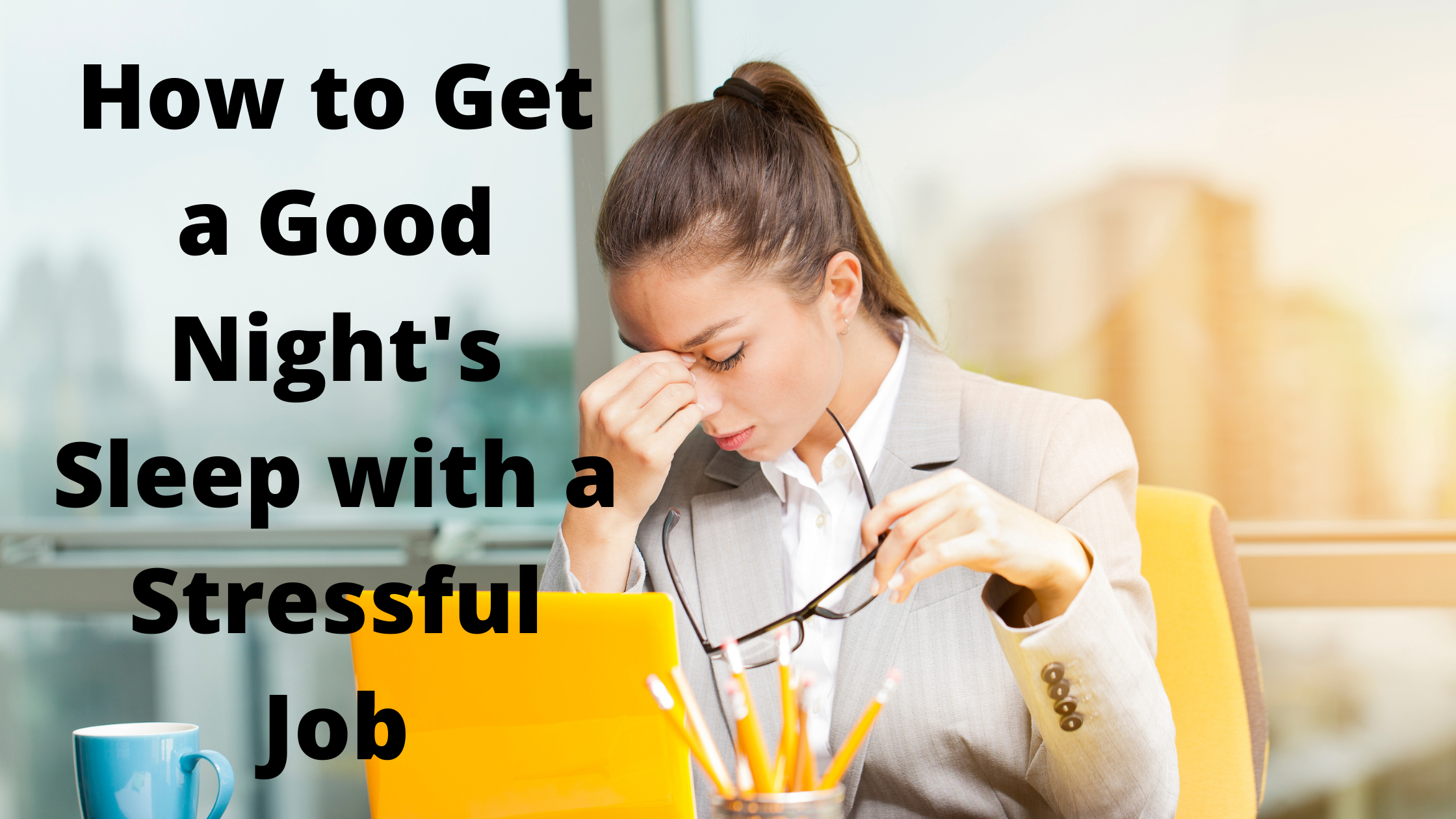
Jobs can be extremely demanding and stressful, making it very hard for people to find a good work/life balance. However, without this balance, it can be very hard to do things that contribute to our wellness, including sleep. Continue reading to find out how to get a good night's sleep with a stressful job.
Set a schedule
With the changing appearance of the workforce due to COVID-19, it is becoming easier and easier for work to consume all 24 hours of the day. Even without the accessibility of working from home, some jobs are so demanding, that the standard 8-12 hour shift aren't enough to finish everything that has to be done. This is dangerous because sleep is usually one of the first things to go. Individuals who have demanding jobs feel that their jobs are more important than other activities, including sleep, and that they can catch up at another time.
The issue with this is that as a sleep debt accumulates, it gets harder and harder to payoff. Therefore, it's best to try not to accumulate much of one at all. Set a schedule of when your work day starts and ends. Not only does this provide you great boundaries, but it also may help to improve your productivity within those set work hours.
Don't work in your room
As everyone finds new ways to work, it may be so tempting to prop the pillows up and drag the laptop into the room. However, this completely messes up your sleep habits. The only thing your bed should be used for is sleep and sex. You shouldn't even lounge in the bed and just watch TV without the intent of following asleep.
When you work in your room, not only do you not maintain work boundaries, but your room also becomes associated with the stress that is a part of your job. By deliberately separating these two spaces, you may find it easier to sleep as your room is only associated with relaxing.
Find ways to relax and destress
If you are unable to destress from your stressful job, then a good night's sleep may be far off in the distance. As you lay down to go to sleep you may ruminate about what you did and didn't do and what still needs to be done tomorrow. This anxiety and tension you feel may be counteractive to your sleep efforts.
This is why it's important to find ways to relax and destress before bed. Ways of doing this are spending time with family after work, meditating, taking a warm bath, reading a book you enjoy, and even going for a walk. Anything that you find relaxes you should become a part of your bedtime routine, as long is it is not something that elevates your heart rate, like exercise.
Take time to catch up on sleep
It can be intimidating to take time off work, especially to sleep. But if you have vacation days or sick days, then it's important to use them, especially if they don't roll over into the next fiscal year. Don't feel guilty about taking time off, especially if you work really hard. Use some Fridays and Mondays for extended weekends that you can use to catch up on sleep. You won't fully be able to reduce your sleep debt, but you may be able to recoup just a few hours. Take this time for yourself and don't feel guilty about doing it.
Remember that work isn't everything
We work really hard at our jobs for promotions and recognition and maybe even a raise or bonus. However, at the end of the day if something happened to you and you couldn't work anymore, your job would be filled before you could even figure out your next step. So, even though it's important and feels good to work hard, if you're at the point where your health is declining due to your job, it's time to take stock of what's really important out there.
Starting over can be scary and living a life of unknown is anxiety provoking. However, unhappiness for significant amounts of time is not a way to live life either. Figure out what's important to you and if your job is enabling you to do that or not. And if the answer is "or not", then it may be time to make a switch.
Try the above tips to improve your sleep if you have a stressful job. If that doesn't work, then click the orange button below to take a free online sleep test and talk with one of our sleep health professionals who can help.

